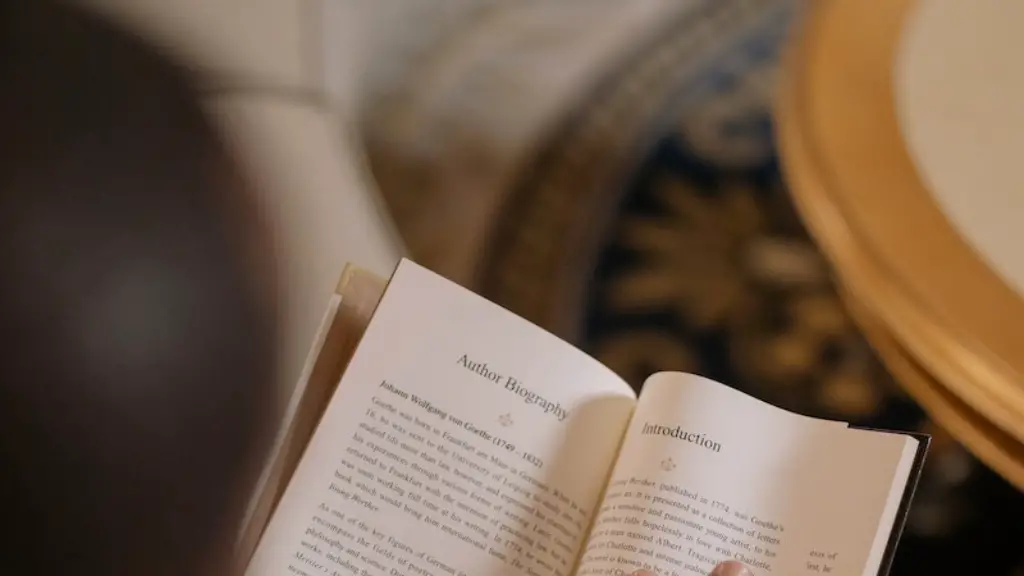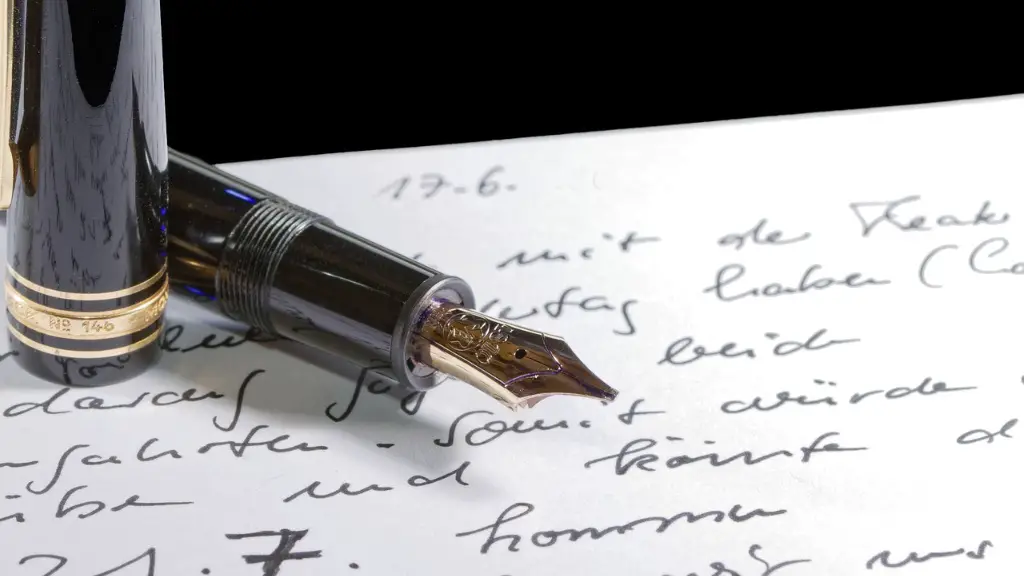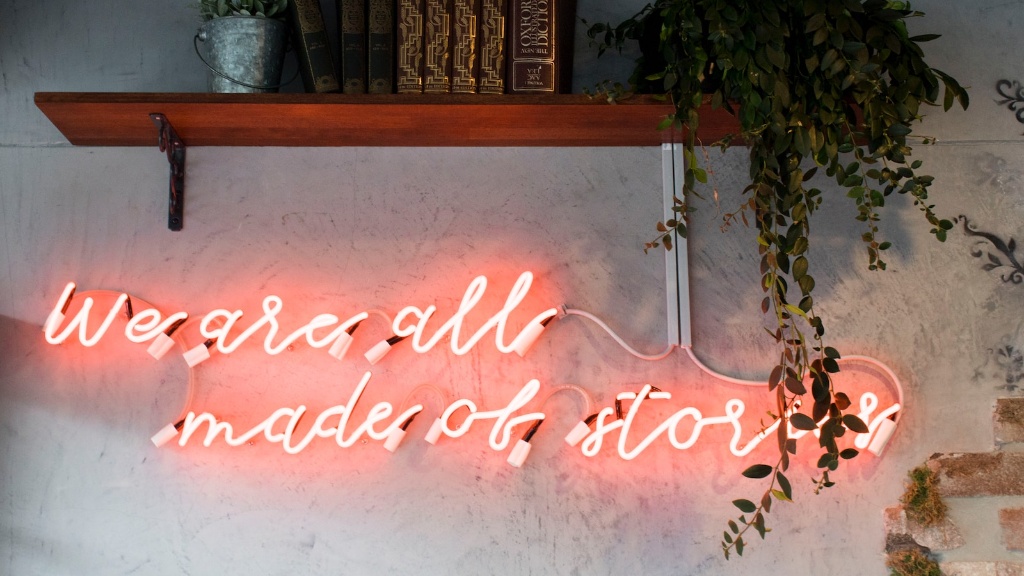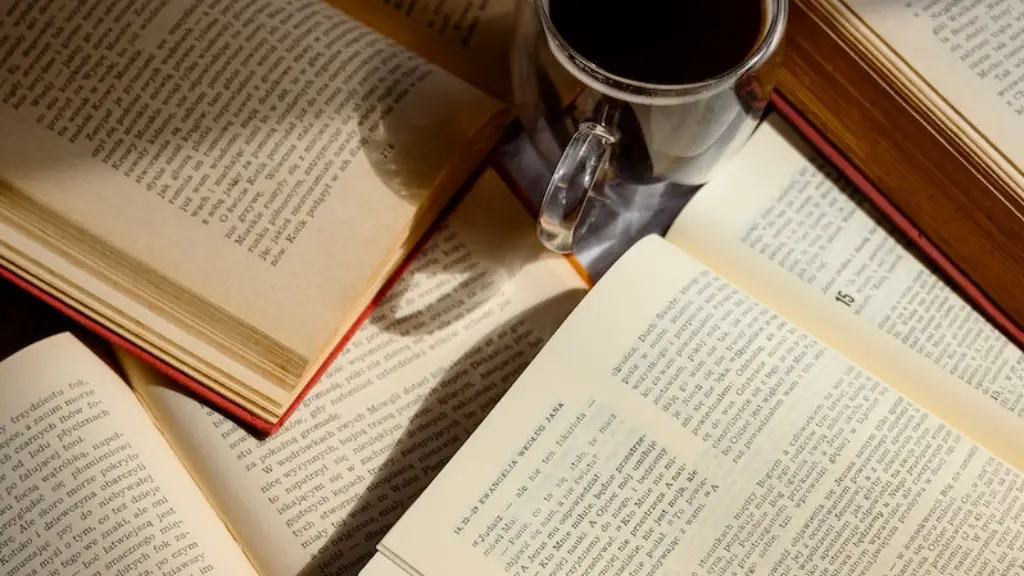Introduction to Gothic Poetry
Gothic poetry is one of the most mysterious and evocative forms of poetry, which captures the essence of the supernatural. It has developed over the years from its humble roots in the dark ages and is now a form of expression which can captivate audiences. Gothic poetry utilises the attractions of the unknown, depicting supernatural creatures and its associated elements in a darker, darker way. This style of poetry draws on the imagination of its readers, providing them with an opportunity to explore the world of their nightmares and fantasies.
Gothic poetry is renowned for its use of imagery and metaphor, with authors making full use of eerie elements such as ghosts, gargoyles and vampires. By invoking these symbols in a powerful way, Gothic poems are able to create an atmosphere of fear in their readers. This is further emphasised by the use of gloomy language and the exploration of topics such as death and depression.
The influence of the Romantic Period cannot be overlooked when discussing the evolution of Gothic poetry. During this time, writers such as Edgar Allan Poe and Mary Shelley began to write about the gruesome supernatural, inspiring other authors to follow suit. This trend of writing dark and mysterious stories eventually gave rise to the genre of ‘Gothic Fiction’, which has had a lasting impact on the evolution of Gothic literature.
The Main Features of Gothic Poetry
The main features which set the tone for Gothic poetry are its spooky atmosphere, supernatural elements and the exploration of sorrowful emotions. The poem must evoke an atmosphere of fear, often detailing strange occurrences and creatures, creating a sense of dread for the readers. Many Gothic poems contain a dramatic narrative and employ literary devices such as personification and metaphors in order to drive the narrative forward. By using these tools, the poet is able to make the poem come alive with descriptive details.
In addition to this, Gothic poetry often incorporates a supernatural element which serves as the main source of tension in the poem. This is usually a creature or figure which is considered to be monstrous or evil, such as a vampire, a gargoyle or a ghost. In some cases, the supernatural beings will be set against a human character, with the poem exploring the conflict between the two. Furthermore, Gothic poems often contain a moral lesson which is implied in the narrative.
Lastly, a major feature of Gothic poetry is the exploration of sorrowful emotions. Many poets have chosen to focus on themes such as grief and despair, in order to evoke a feeling of hopelessness in the reader. By drawing on the darker side of human emotion, writers are able to create a sense of dread and horror in the poem which keeps the audience engaged.
Gothic Poetry and its Influence on Popular Culture
The influence of Gothic literature is clearly seen in modern culture and the arts. Writers such as Stephen King and Anne Rice have used Gothic elements in order to create powerful and gripping stories which have been hugely successful. Furthermore, the prominent use of Gothic themes in films and television has enabled the genre to reach an even wider audience and spark discussions around the topics it deals with.
The popularity of Gothic elements in the entertainment industry has served to create an interest in the type of literature, with many readers wishing to explore the genre further. As such, Gothic literature has become a major part of the literary canon, with authors such as H.P. Lovecraft and Edgar Allan Poe becoming widely recognised as key figures in the genre.
Furthermore, the influence of Gothic literature can also be seen in other forms of art, such as music. Gothic music often incorporates supernatural and horror-inspired elements in order to create a dark and intense atmosphere. This is seen in the work of artists such as Siouxsie Sioux and The Sisters of Mercy, who have used the genre in order to paint pictures of despair in their music.
Themes and Subject Matter in Gothic Poetry
Gothic poetry often focuses on macabre and fantastical topics, with its themes exploring the darker side of life and the supernatural. A recurrent theme in the genre is death and decay, with many poems dealing with themes such as grief and the fear of what lies beyond the grave. Subjects such as curses and vampirism are also addressed in Gothic poetry, with writers often exploring the relationships between society and the supernatural.
Furthermore, some Gothic poems deal with themes of oppression and injustice, making use of the supernatural elements in order to express the injustices of the human world. In a literary sense, Gothic poems can be seen as a protest against the status quo in society, with writers using the genre to create an atmosphere of unrest.
In addition to this, many Gothic poems make use of elements such as ghosts and other paranormal activity in order to explore the unknown. By addressing these topics, many poets are able to make a statement about the human condition and the state of the world at large.
Gothic Romance in Poetry
Gothic poetry often utilises the themes of romance and love, in order to explore the darker side of love and relationships. This can be seen in the work of authors such as Edgar Allan Poe and J.M. Barrie, who have used romance to explore the power of love in its darkest form. Gothic romance often takes on a fatalistic tone, with love often signifying death and doom for the protagonists involved.
Gothic romance can be seen as a representation of the struggles of relationships, with authors exploring the idea that love can be both beautiful and deadly. By focusing on the darker aspects of romance, Gothic poetry blurs the lines between love and death and questions the power of romantic love in the face of despair.
In this way, Gothic poetry makes use of romance in order to create a sense of doom and dread in the audience. Through its exploration of love and death, Gothic romance opens up important questions which challenge the idea of romantic love and its implications in the modern world.
Gothic Poetry In the 21st Century
As the 21st century continues to progress, Gothic poetry has found new avenues of expression and relevance. Modern authors are using the genre to express existentialist and nihilist views, making use of its darker elements to explore themes such as the meaninglessness of life and the emptiness of existence. Through its examination of these topics, authors are able to craft stories which reflect the current state of humanity in a powerful and thought-provoking manner.
Furthermore, popular culture has embraced the genre of Gothic poetry, with artists and musicians finding new ways to express the genre in different mediums. This is seen in the use of Gothic elements in films and television, where horror and dread are used to explore themes of human suffering and despair.
Overall, Gothic poetry is an important form of expression which has found relevance in the 21st century. It uses the supernatural in order to tackle the issues of the modern world, allowing readers to see the world through a different perspective. By providing its audience with a glimpse into the darker side of life, Gothic poetry is able to create an atmosphere of fear and dread which can be both provocative and thought-provoking.




